
A financial technology services firm on Monday unveiled Nopaperbills.com, a Web site where consumers and small businesses can receive, view and pay both electronic and paper bills over the Internet.
However, an analyst at e-financial research and consulting firm Celent told the E-Commerce Times that many hurdles continue to impede the success of Nopaperbills.com and other scan-and-pay or lockbox service providers, such as Paytrust.
“The problem is that these services are very expensive to provide, because the service providers have to handle many paper bills,” Celent managing director Octavio Marenzi said. “It’s just not a scalable business model. There are far more elegant ways to solve the (bill-paying) problem.”
Paper Problems
Mesa, Arizona-based Nopaperbills.com, which is owned by Complete Financial Services (CFS), will receive customers’ bills, whether paper or electronic, and allow consumers to review and pay their bills online, according to time and automation preferences.
Targeting mainly individual consumers, Nopaperbills.com intends to win members by selling the convenience of a one-stop bill-paying shop, CFS founder and chief executive officer John Worsley told the E-Commerce Times.
Nopaperbills supplies each member with a unique mailing address, so that credit card companies and other payees can send bills directly to Nopaperbills. Upon receiving members’ bills, Nopaperbills converts paper bills into electronic format, and presents members with the complete billing information online.
According to Marenzi, the costly process of converting paper bills into an electronic format is the major hindrance to operating a scan-and-pay service successfully.
Needs More E-fficiency
“The key to making it work is to get the [original] billing information electronically, such as through screen-scraping of a customer’s credit card account,” said Marenzi. “The data re-entry required by the service provider is cost-prohibitive, otherwise.”
Indeed, Worsley said that apart from some “big billers” like credit card companies, the majority of bills to be handled by Nopaperbills are in paper format.
Marenzi applauded the efforts of another bill-paying service provider, CheckFree, which tried to acquire billing information electronically, but noted that it ran into many reluctant billers who preferred to develop their own online bill payment offering without a third-party vendor’s involvement.
Further complications could arise from providing a new mailing address to credit card companies, suggested Marenzi. New credit cards and other offers would be sent to Nopaperbills.com, not to consumers. Many people want to receive these offers directly and would fear them getting lost in the handoff from Nopaperbills back to them, said Marenzi.
Elusive Footholds
Customers of Nopaperbills will feel the brunt of the costly paper-to-electronic bill conversion processes, amounting to about US$10 a month for the average consumer.
Given the recent troubles in the technology sector, Marenzi anticipates that many consumers would be unwilling to pay for an online bill paying service, which “makes it doubly hard” for the vendors to succeed.
Marenzi acknowledged the potential time-saving benefits consumers might enjoy from bill-paying services like Nopaperbills, but suggested that consumers would not realize these benefits right away.
“These services take time to set up, so it’s not an immediate time-saver,” said Marenzi.
Family Matters
Nopaperbills.com is encouraging members to market the payment service to family and friends through an affiliate program that promises participating members monthly recurring revenue from new member sign-ups, said Worsley.
Due to licensed technology from CyberBills — now owned by Metavante Corporation — Nopaperbills.com’s services include billing summaries, e-mail alerts regarding billing status, and automated payments to merchants when there is no bill. ![]()



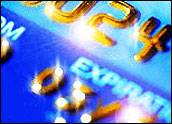
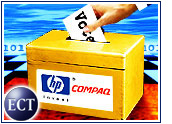




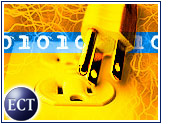
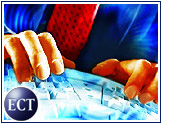
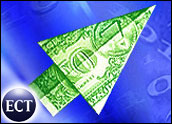
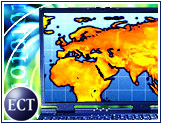
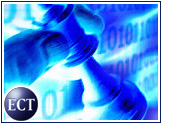

































As a very happy customer of Paytrust, I have to question Marenzi’s analysis of the consumer value proposition with on-line bill pay. After years of spending several hours/month of monotonously opening, reading, paying, mailing, and filing bills (which to me is a non-value added, life “stealing” activity) I feel like I’ve received an incredible gift of time and convenience with this service. Paytrust has been 99.9% reliable, I can pay bills anywhere I have internet access (great when traveling), and the cost is just little more than what I’d pay for stamps. These benefits far outweigh the 2 hour set-up time it took to get started and missing the “junk mail” promotions I’d pitch in the trash anyway. I think any busy professional or “household CFO” with a life would never go back to traditional bill pay after trying this service.
I will be interested to see what the uptake rates are for this service. An identical offering was launched in early 2000 in South Africa, called http://www.nomorebills.co.za. The company founders concurred with your expert’s assessment regarding critical issues in a consumer-centric business model and determined that the service should be withdrawn from the market until the EBPP market matures.
While committed to new services that give the consumer what they actually want, I imagine that the nopaperbills solution may find it difficult to grow a healthy user base without significant education and awareness raising around the real benefits of EBPP. Just as with pure online banking plays, we continue to discover that end-users are reluctant to adopt technology that lacks a bricks and mortar counterpart.
The nopaperbills.com service is also obviously extremely labour-intensive and costly to administer well, and unless they have an anchor client that can provide a large enough core group of individual users to kick-start consumer adoption, it could be quite a rocky ride.